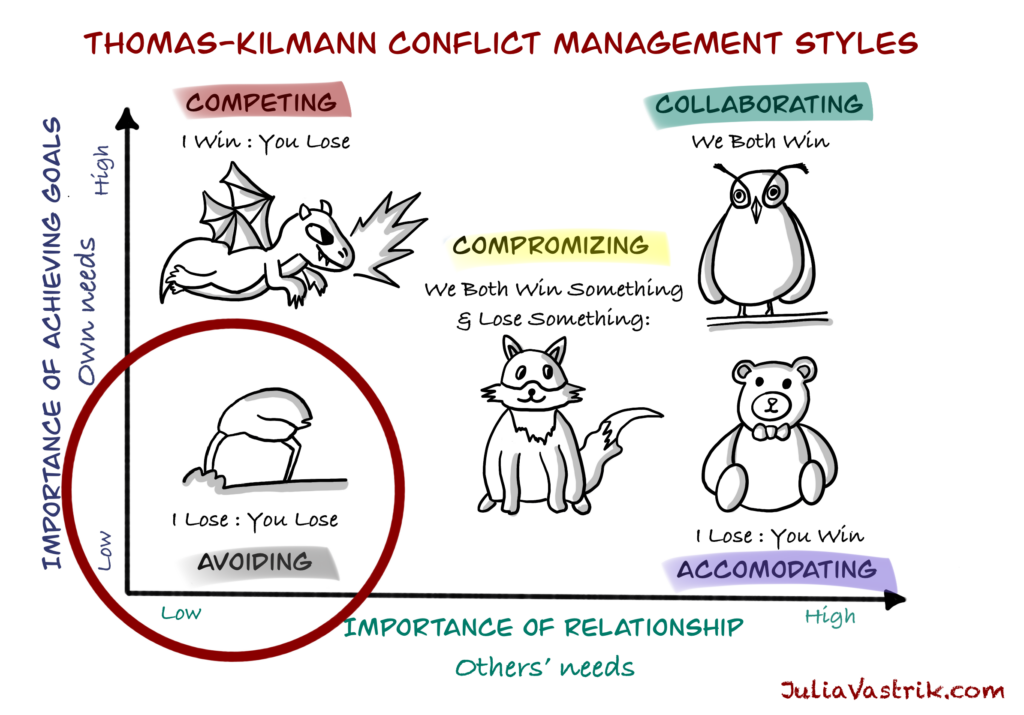Do you tend to avoid conflicts? If so, you might find the Abilene Paradox particularly interesting.

This concept was introduced by Jerry B. Harvey in his 1974 year article “The Abilene Paradox: The Management of Agreement.” It describes a situation where a group collectively makes a decision that nobody actually wants—simply because each person assumes that others are in favor of it. In an attempt to accommodate what they think others prefer, they end up agreeing to something that serves no one’s real interest.
In the classic example, a family agrees to take a trip to a restaurant in another city (Abilene), even though no one actually wants to go.
(“The drive is hot, dusty, and long. When they arrive at the cafeteria, the food is as bad as the drive. They arrive back home four hours later, exhausted.” See an article in Wikipedia)
Each family member believed that everyone else wanted to make the trip and went along with it to please the group, only to discover later that no one genuinely wanted to go. They all sit back, shocked and perplexed that they together decided to take a trip that none of them wanted.
Many of us are afraid of conflicts and tend to avoid them at all costs, believing that this way we will keep good relations, save time and avoid emotional damage. But we still pay our price, often without realizing it.
We end up agreeing to things we don’t want, going along with decisions that don’t serve us, or spending energy on something that no one truly believes in. In the moment, it feels easier—less friction, less discomfort. But over time, unresolved tensions pile up, unspoken frustrations grow, and the harmony we tried to preserve starts to feel artificial.
The irony is that by avoiding conflict, we sometimes create even deeper disagreements. The conflict does not disappear but in addition to the conflict itself, we start having bad feelings because of the unspoken words, the silent compromises, the things we reluctantly agreed to while hoping someone else would object.
Resentment builds, misunderstandings grow, and the very relationships we tried to protect can become strained. What seemed like an easier path at the moment often leads to frustration down the road.
This is something that many of us have probably experienced – we avoid conflict until it’s no longer possible to avoid it—until the pressure builds up so much that an explosion happens.
→What if, instead of avoiding conflict, we learned how to have those conversations without damaging relationships?
→What if we saw open discussion not as a threat, but as a way to express our needs while also truly listening to others?
→What if we practiced honesty with kindness and empathy—voicing our thoughts without blame while creating space for open yet safe conversations?
→What if conflict, when approached with care, could actually bring us closer rather than push us apart?
See how I run the Conflict Management Styles exercise .

